For local citizens as well as for outsiders, dealing with the Immigration Department of Hong Kong is almost an inevitable. Birth and death registrations, entering and exiting Hong Kong, and marriage registrations are just a few of the department’s services.
The department has been known for high efficiency. For example, it takes only four weeks to approve a foreign art group’s application to perform in Hong Kong—in almost all cases, that is.
Actually, Shen Yun Performing Arts might be the only group that waited for more than 17 weeks for its staff’s visa approvals, and it was informed only three days before the company’s scheduled flight to Hong Kong that the entry visas of six core staff members were denied.
Freedom to Perform in HK in Jeopardy
It was not only Shen Yun’s rights which were violated—the rights of the tens of thousands who purchased tickets to Shen Yun’s shows were also trampled. Amy, who came from the U.S., planned to watch the show with nine of her family members. They had purchased plane tickets and booked hotels. She did not expect the Hong Kong government to do what Beijing would have done.
A columnist for the Hong Kong-based Economic Journal wrote: “Will the Hong Kong government require Broadway-show companies to perform Phantom of the Opera, Les Miserables, and Cats in HK after they have hired local people as their lighting specialists?”
Hong Kong’s Autonomy
In the past few years, the Hong Kong Immigration Department has had its share of scandals like this, from blacklisting Chinese dissidents, to massive deportations of people who protested against Chinese leaders, to the repatriation of a Tiananmen Massacre survivor who was immediately jailed on his arrival in China.
It is no secret that Hong Kong’s autonomy has been tainted since the 1997 hand-over. It seems the Immigration Department is a key target of Beijing’s infiltration and direct control. In many ways, the Immigration Department is guarding Hong Kong’s gate for Beijing, barring any guests considered unwelcome by the central government.
Hon. Albert Ho Chun-yan, chairman of the Democratic Party (Hong Kong) and legislative council member, has been in touch with the Immigration Department over multiple deportation and entry case issues.
Ho said that China’s liaison offices in Hong Kong frequently interfere with the department’s work. “There’s a huge loophole in the Immigration Department,” Ho said. “The central government (of China) can interfere at will and control the immigration policy of Hong Kong.” Ho also criticized the department for no longer following the law when making decisions.
Changes Following the Hand-over
The Sino-British Joint Declaration signed in 1984 stipulates that Hong Kong “will be vested with executive, legislative, and independent judicial power, including that of final adjudication.” Therefore, today’s Hong Kong should allow law-abiding people with legal documents to enter and exit freely, as it had been doing before the hand-over. But since 1997, things have changed.
Around the “sensitive” days, including June 4th (anniversary of the Tiananmen Massacre), the Olympic Games, and visits by mainland leaders, the Immigration Department has faithfully barred activists for democracy, Falun Gong practitioners, and many others on China’s blacklist.
Wang Jinzhong is the vice president of the China Alliance for Democracy. On Dec. 23, 1996, he flew from Japan to Hong Kong to celebrate its last Christmas under British rule. He was “locked up for five hours and given no reason.” Before 1996, Wang had entered Hong Kong four times without resistance.
The Hong Kong government has been reluctant to admit to such a blacklist, but few doubt its existence. In 2001, the head of the Hong Kong Security Bureau confessed that the government had an “unwelcome” list, and said it was updated frequently. Later, on multiple occasions, the Hong Kong government denied having such a blacklist.
Collecting Information Via the Internet
According to Taiwan Falun Dafa Association spokesman Chang Ching-hsi , since 2002 the Hong Kong Immigration Department has altogether rejected and repatriated Falun Gong practitioners 1,200 times. The most serious incident occurred on July 1, 2007, when nearly 800 Falun Gong practitioners from Taiwan and other areas were repatriated by force.
In April 2003, five Falun Gong practitioners from Hong Kong and Taiwan jointly filed a lawsuit against the Hong Kong Immigration Department over an incident in which 80 Falun Gong practitioners were barred from entering Hong Kong. The lawsuit lasted six years. In Sept. 2009, the Hong Kong Immigration Department won the lawsuit, although the judge criticized the Hong Kong government‘s lack of cooperation and sharing of information during the entire process.
Lawyer Teresa Chu from Taiwan, one of the plaintiffs, said the outcome of the case was not fair, however, the trial did expose that the CCP collects and maintains blacklists. According to Chu, “The CCP uses its Golden Shield to collect people’s information through the internet, including citizens of Taiwan, and they use this information to violate people’s rights.” Chu argues that the Hong Kong government should not be the CCP’s accomplice and violate Hong Kong’s Basic Law.”
The Golden Shield was established and managed by former Chinese leader Jiang Zemin’s son, Jiang Mianheng. Even in its very early stages, it employed hundreds of thousands of internet policemen to survey the internet for unwanted sites. Later it developed internet blocking, filtering, and monitoring applications.
The evidence in the lawsuit against the Hong Kong Immigration Department included email from the department to an administration office of a Hong Kong airline. An email was titled ‘Preventing Falun Gong practitioners from entering Hong Kong.’ In that email message, the Hong Kong airline required the Taiwan office to comply.
Dissidents Secretly Repatriated
In 2008, the Hong Kong government repatriated Zhou Yongjun, an activist for democracy, back to China. Zhou was sentenced to nine years in prison in Jan. 2010. People in Hong Kong are expressing concerns that ‘One Country, Two Systems’ no longer exists.
Zhou Yongjun, 42 years old, was one of the student leaders during the 1989 student movement. He was one of the three students who asked for a dialogue with the CCP authorities.
He applied for a Chinese passport many times, but never received one. In order to return to China, he used a counterfeit passport from Malaysia. When he arrived in Hong Kong, he was detained for an investigation of fraud. The Hong Kong government handed him over to the Shenzhen police.
Albert Ho Chun-yan was Zhou’s lawyer. He said that Zhou was arrested for a fraud investigation in Hong Kong and should therefore be tried in Hong Kong. “The authorities violated the regulations regarding judicial independence stated in the Basic Law. Any dissident in Hong Kong can be secretly sent back to mainland China,” he said.
Read the original Chinese article:
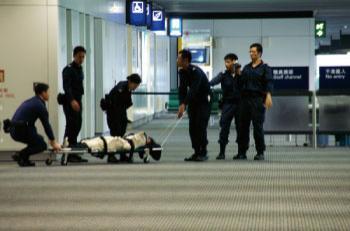
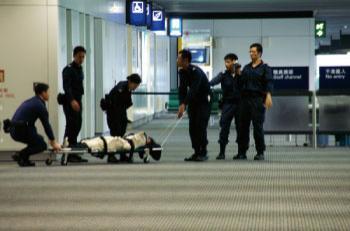
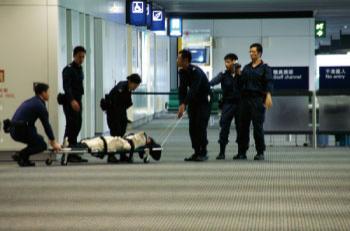
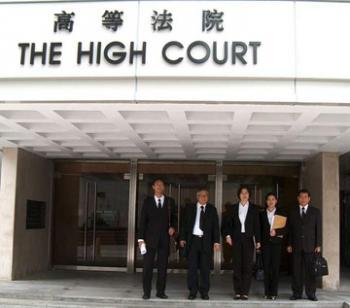
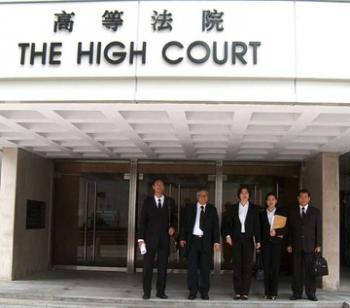
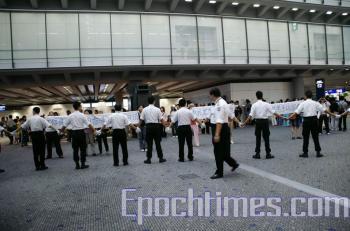
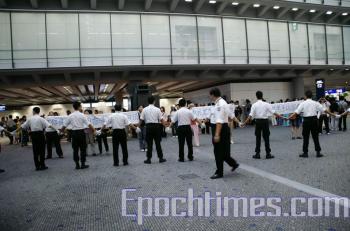
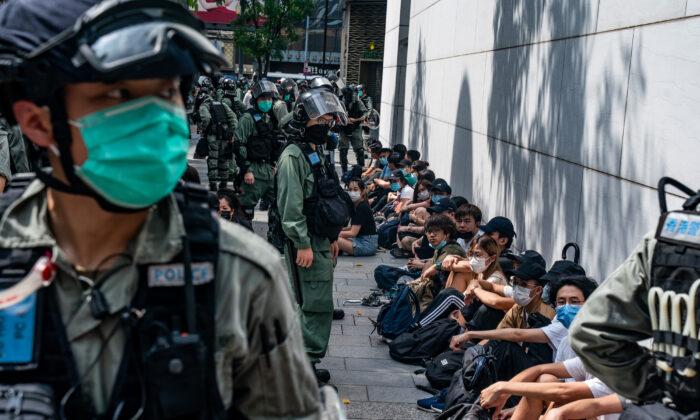
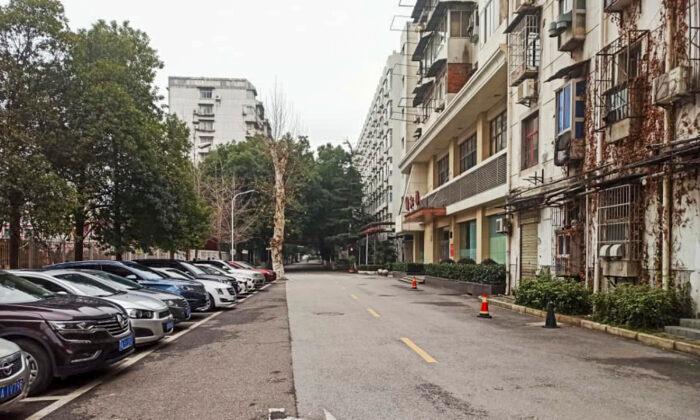
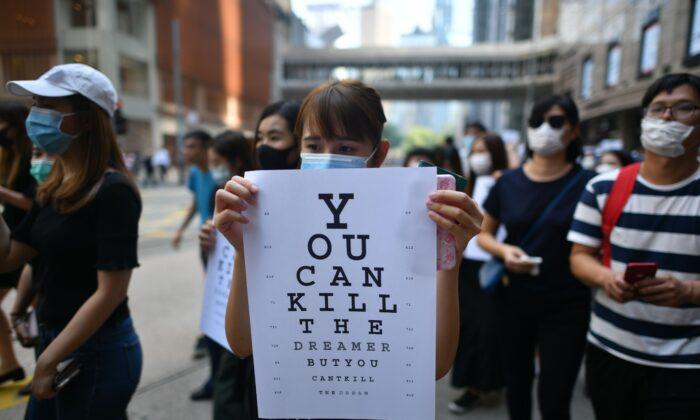
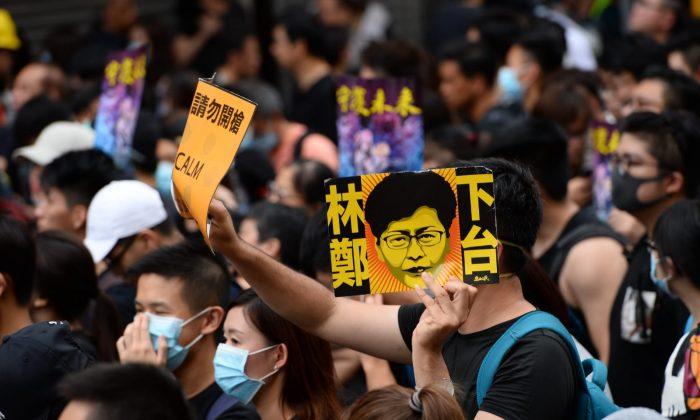
Friends Read Free